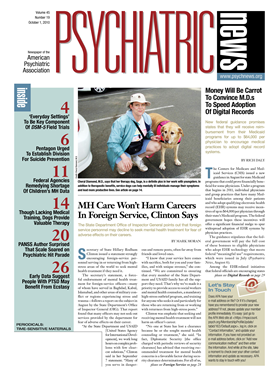Prenatal and early-life exposure to ethylmercury from vaccines containing thimerosal—used for decades in vaccines as a preservative—has been shown to be unrelated to increased risk of autism spectrum disorders (ASD).
A case-control study of children with and without ASD insured through three managed care organizations, using immunization registries and other information to compare exposure to thimerosal-containing vaccines pre- and postnatally, found no increased risk for ASD among those exposed to thimerosal at any of four periods.
(The managed care organizations were Kaiser Permanente Northern California, Kaiser Permanente Southern California, and Harvard Pilgrim Health Care.)
The report, “Prenatal and Infant Exposure to Thimerosal From Vaccines and Immunoglobulins and Risk of Autism,” appeared in the October Pediatrics.
The study adds to a substantial body of research that refutes the concept—widely circulated in some areas of the country and Europe—that childhood vaccines contribute to the development of autism.
“Most previous research has not revealed an increased risk of autism associated with receipt of thimerosal-containing vaccines,” wrote lead author Frank DeStefano, M.D., M.P.H., of the Immunization Safety Office at the Centers for Disease Control and Prevention (CDC) and colleagues.
“Evidence is limited, however, on the timing of vaccination, especially prenatal exposure, and associations with different subtypes of autism. This study revealed no increased risk of ASD associated with receipt of thimerosal-containing vaccines. No increased risk was found for subtypes of ASD, including ASD with regression, and prenatal exposure was not associated with a risk of ASD.”
In the study, 256 children with ASD and 752 controls enrolled in three managed care organizations were matched by birth year, gender, and the managed care organization that insured them. ASD diagnoses were validated through standardized in-person evaluations. Exposure to thimerosal in vaccines and immunoglobulin preparations was determined from electronic immunization registries, medical charts, and parent interviews. Information on potential confounding factors was obtained from the interviews and medical charts.
Results showed no increased risk for any of the three outcomes—autism spectrum disorder, autism disorder, or autism spectrum disorder with regression—from exposure to thimerosal at any of four periods: prenatal, birth to 1 month, birth to 7 months, and birth to 20 months.
Thimerosal has been used as a preservative in vaccines since the 1930s. It is 49.6 percent mercury by weight and is metabolized into ethylmercury and thiosalicylate. In 1999 the Food and Drug Administration estimated that infants who were immunized according to the recommended schedule might have received amounts of ethylmercury that exceed Environmental Protection Agency limits for exposure to methylmercury.
In response, the CDC planned studies to examine potential links between ethylmercury exposure and developmental outcomes. Several CDC-sponsored studies examined neuropsychological outcomes—showing no association with exposure to thimerosal—but ASD was not assessed in any of them.
During last year's annual policymaking meeting, the AMA House of Delegates approved a resolution sponsored by the Section Council on Psychiatry that called on the AMA to reaffirm its support for universal vaccination and continue collaborative efforts to communicate the message that vaccines do not cause autism.
Child psychiatrist and Section Council on Psychiatry member Louis Kraus, M.D., told AMA delegates at the time that it was common for parents of a child with autism to decide not to get vaccinations for other offspring because of something they saw on a television talk show or read on the Internet about vaccines causing autism.
“There are tens of thousands of children not being vaccinated secondary to dogma,” said Kraus, who is medical director for the Easter Seals Therapeutic Schools in Chicago for children with autism (Psychiatric News, July 17, 2009).
